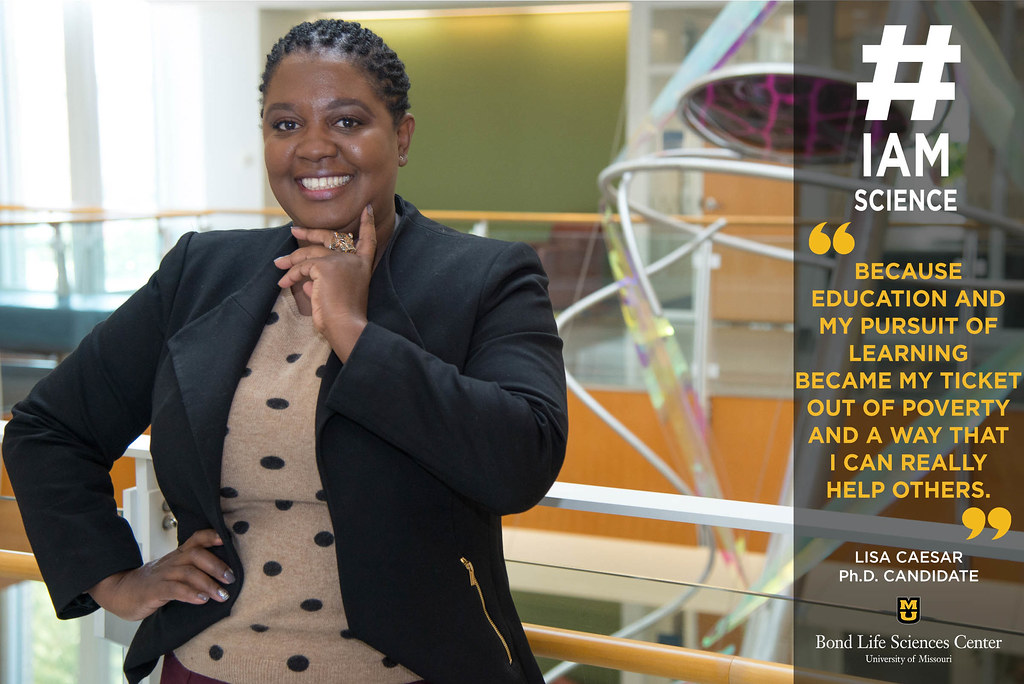
By Allison Scott | Bond Life Sciences Center
“#IAmScience because education and my pursuit of learning became my ticket out of poverty and a way that I can really help others.”
“Mother knows best” rings true for Gerialisa Caesar. In her family, the career options were either to be a lawyer, engineer or doctor.
But with little interest in law and a greater love for science than math, Caesar decided to pursue her doctorate.
“I graduated high school at 16 fully equipped to enter the work force,” Caesar said. “I went back to school to study science because my mom basically told me I had to, but biology fit me really well, so it worked out.”
Initially, Caesar was hesitant that she could even become a scientist.
“I had an idea of what a scientist was, and it wasn’t me,” Caesar said. “After I immigrated from Guyana, my undergraduate advisors, Drs. Carroll and Catapane, explained the opportunities I had to study biology. It opened the world of possibilities for me to pursue science.”
Now, as a biological sciences Ph.D. candidate in Laura Schulz’s lab, Caesar focuses on women’s health and reproductive biology.
“My research is to understand how a mother’s nutrition prior to and during pregnancy affects the baby’s development,” Caesar said. “This is important as several studies link maternal diet during pregnancy to an increase in susceptibility of the offspring developing diseases such as obesity, diabetes and hypertension in adulthood.”
That includes connecting how mother’s diets cause fetal health issues, which is a highly debated topic.
“For example, a lot of women are told to take folic acid pills during pregnancy,” Caesar said. “Doing that has been tied to help with neural development concerns — things like spina bifada [a birth defect that affects developing babies’ spinal cords]. Understanding the mechanisms that make that occur would aid in developing better interventions to prevent such occurrences.”
As a result, Caesar’s research has the ability to help the world’s greatest health concerns in an impactful way.
“My work is directly contributing to prevent health issues that exist for future generations,” Caesar said. “Knowing that is motivating.”
After she earns her Ph.D., Caesar would love to work for the Center for Disease Control and Prevention.
“The CDC has immediate response teams that react to major disease concerns. Being a part of that would be incredible,” Caesar said. “There’s something about working for the CDC and being able to have a meaningful impact within the community that calls me.”
Caesar plans to channel that passion regardless of where she ends up, though.
“Biology is literally the study of life,” Caesar said. “As much as I thought science was challenging, I am able to see how it affects everyday life. I have a purpose, and I know what I do is going to make a difference.”

